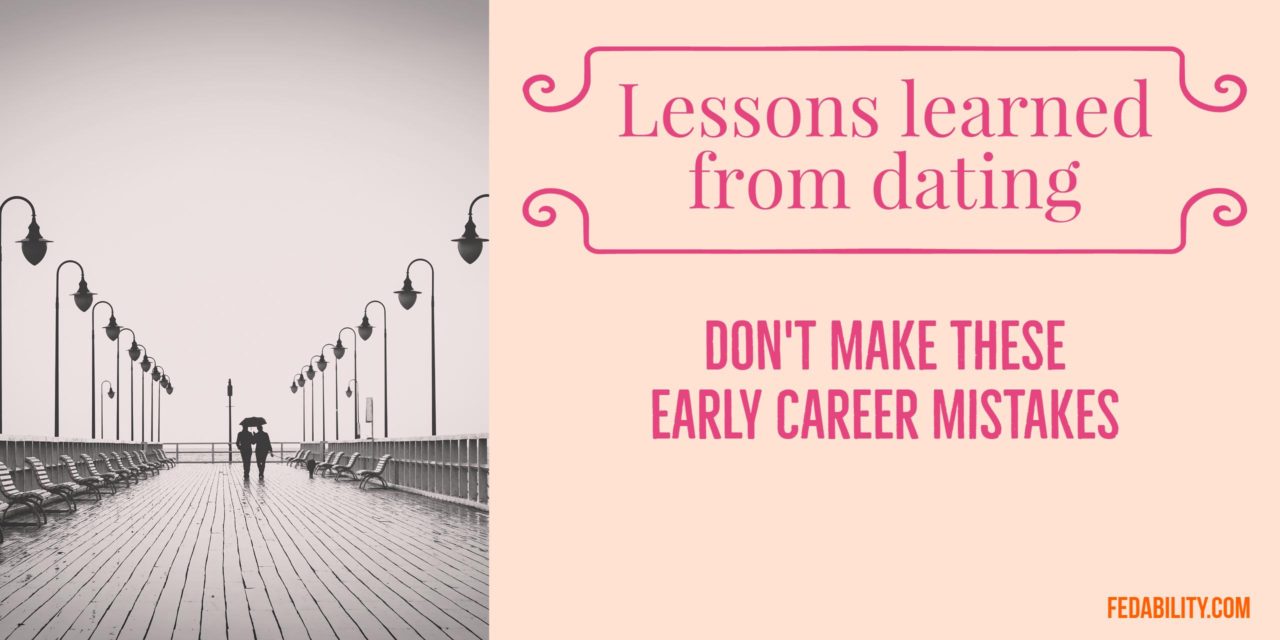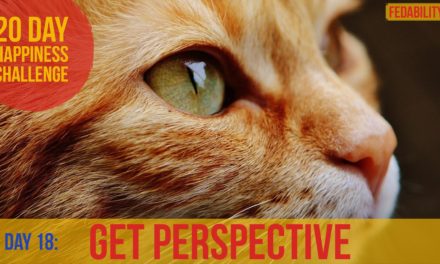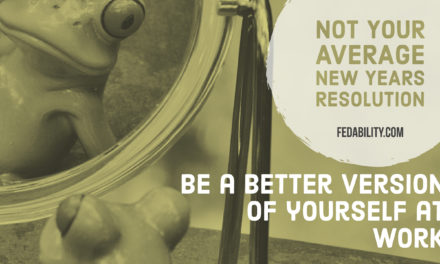If you think about it, the early stages of a career share some similarities to a new dating relationship. It’s exciting and perhaps a little uncertain. Both sides are learning about each other, adapting to the other, and deciding whether they want to do this long term. So, why not look to the dating advice columns to gather any lessons learned that might help you navigate this new relationship? Don’t worry, we’ve poured over the dating articles so you don’t have to and identified 4 lessons learned that you need to consider if you’re new in your career.
First, let’s be clear about the differences between a job and a career. This distinction is important because each have a unique mindset that will make you successful (or leave you disappointed).
A job is something you do to earn money. It’s not about advancement (unless it earns more money). It’s not about feeling fulfilled. One job may have very little to do with another job you might hold. And, you aren’t thinking about the future (beyond what you plan to do with that paycheck).
Conversely, a career is a long-term undertaking that is aimed at someone’s lifework or profession. Typically you see progression in one’s skills over time, as well as increases in autonomy, responsibility, and status. It’s assumed that ‘jobs’ along a career path are more than a means to money. They provide the person more personal and professional satisfaction and fulfillment.
So before you read further, reflect on whether you are in a job or whether you are pursuing a career. If you are looking to be better at your job, then head over to Forbes for their article with 10 habits to be better at your job in 2016. If you’re looking to be better in your career, read on.
Lessons learned #1: Not taking time for yourself, not having boundaries
You’re excited and passionate about your career. You know that you are going to have an impact on the world in some way. It’s all you ever think about or talk about. You eat and breathe and sleep your career. We get it. It’s amazing. And so, you stay late. You skip family stuff because there’s time for that later. Your best friends are your coworkers or others that have the same career goals.
The problem is, just like a new dating relationship, it may be too much too soon. You burn out. Cute quirks become hugely annoying habits. Neither one of you is bringing anything new to the relationship.
A woman I worked with fell into this trap of not having boundaries. She could often be found in her office late into the evening. And, regardless of whether it was the weekend, her day off, or even a vacation, she almost always responded to emails. As a result, people came to expect her to answer. Her team assumed she’d work through the weekend so they submitted things for review on Fridays.
As the years passed, she became increasingly less happy. Her health began to deteriorate.
One day, she called in sick. The day turned into a week. The week turned into two weeks. Ultimately it was more than a month until she returned. Her team had to shuffle to get the work done. And there was a notable hole in our division.
There may be instances that you need to burn the midnight oil to hit a deadline or period during the year that are crunch times. But when you’re early in your career, keep an eye on how often it happens and to protect your work life balance. Getting rest, having fun outside of work, or even leaving your desk for lunch each day will all benefit you in the long term.
Lessons learned #2: Comparing to your ex or carrying old baggage
If you’ve been in the dating pool long enough, you’ve probably been hurt. Most of us will gather stories of working in a toxic environment, a bad boss, or crazy team members. Whether in romantic relationships or in our work history, these are all opportunities to learn and grow. And, we can bring those things into our new relationships for good or for bad.
Just because one boss in your history was cruel, doesn’t mean the next one will be. Just because one team member took credit for your work doesn’t mean every team member will.
In my own career, I once had a team member take personal offense to me helping to develop her. She accused me of treating her differently and not appreciating her experience. While that may have been her perspective, I was genuinely invested in her progression. I couldn’t believe that my good intentions were interpreted so negatively. Years later, when I took a new position and oversaw a new team, I became overly cautious in offering developmental feedback. I kept flashing back to that first team member. Worrying that my good intentions would be seen negatively. To prevent it from happening again, I looked to team members to ask me for help or advice before giving it.
The trouble with this, however, was that my new team was being neglected because of an experience I’d had in a prior relationship. In short, I’d carried old baggage from one position to another.
Lessons learned #3: Avoiding discussions about important matters.
Just as when we start a new relationship, we have a propensity to give the benefit of the doubt to others when we are early in our career. This can be a healthy and appropriate approach in new relationships. Most, however, move beyond giving the benefit of the doubt and are willing to discuss issues that are important to them. For instance, what they want from the relationship. Or, where they see the relationship going. In instances where things aren’t going as well, they are also willing to raise those concerns.
Similarly, someone who is early in their career will need to be willing to initiate the conversations about what is important to them. If you’re looking for progression, you’ll need to discuss your career goals. Ask for advice opportunities that will take you in that direction. Sometimes you may get lucky and work for a supervisor who will bring those things up for you. But more often than not, you’ll need to stop avoiding discussions on these important matters.
Recently I had a team member who was finishing up a large initiative ask, “What’s next?” We talked about what kind of work he enjoys doing. We discussed how he might be able to keep doing that kind of work – even if it meant changing teams for a job rotation. In the course of that conversation, we were able to candidly discuss that the work of the other team would round out his experience in our industry. A gap that, until now, had been preventing him from moving into a higher position. The take-away was that he was willing to:
- Ask for new responsibilities
- Discuss the possibility of changing teams
- Admit that he was looking for new opportunities to move up
Lessons learned #4: Threatening to break up
One piece of advice (which I learned the hard way), is not to make ultimatums that you aren’t willing to follow through on. In dating or at work.
I once had a position that I liked quite a lot (I called it my dream job). Because I loved the position so much I fell victim to Lesson Learned #1. I rationalized that I was doing it for a promotion.
I shared with my leadership that I wanted to move up. They said they’d look into it. After waiting for a few months, I reminded them of my desire and said I’d begin applying to new positions.
Nothing happened. A year passed.
I became increasingly upset. Bitter, some might say. It was a combination of feeling undervalued and overworked.
And then I got a new job offer. When I submitted my resignation, a promotion magically became available.
And I was tempted.
Tempted because I hadn’t wanted to leave. But I decided that if the agency only really responded to imminent threats. And that wasn’t something I wanted for my career. And I accepted the new offer.
In yet another position, I ran into the same situation. Undervalued and overworked. (I am slow to learn apparently) Using what I learned from my prior position, I went so far as to get a job offer elsewhere. A job I had no interest in and had no intention to take. I submitted the offer to my current agency and waited for the magical promotion to show up.
But, it didn’t. I heard through the grapevine that the leadership didn’t believe I’d really leave so they weren’t going to offer any incentive to stay.
Talk about egg on my face!
I could take a job I didn’t want. Or, I could stay in a position I loved (but was overworked and undervalued). I chose to stay. And what I learned was not to threaten to break up (i.e., quit), unless you mean it.





